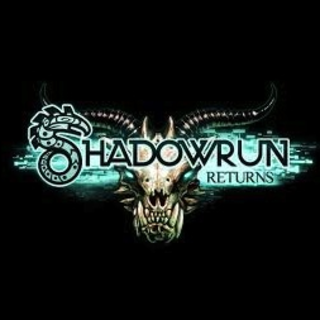A valiant return of the Shadowrun universe, but hurt by linearity and a frustrating checkpoint system.
This new iteration serves as somewhat of a spiritual successor to 1993's SNES release. It's an isometric RPG heavily dependant on character conversations. Shadowrun Returns even makes several nods to the original title, including variations on the music from the SNES game, and even an appearance from classic game's protagonist Jake Armitage as an NPC. Nostalgia is not the only positive factor driving this game, but there are enough misses that it certainly won't please everyone.
The strength of Shadowrun Returns is rooted in its excellent universe. Set several decades in the future, Shadowrun chronicles a magical Awakening that occurs in 2012 after the end of the Mayan calendar. Once-mythical creatures like dragons begin appearing, and a new race of metahumans emerges - orcs, elves, dwarves, and trolls now live alongside humans in everyday life. Sprinkle in some major advances in technology, and this cyberpunk fantasy world is ripe with possibilities.
But Harebrained Schemes gives equal life to the characters in Shadowrun Returns. A lot of love went into the writing of this game. Conversations with characters do not simply result in an exchange of dialog. The game describes moods, facial expressions, settings, and reactions with the skill of a novelist. Nearly every personality you'll meet - from the bartender to the cyber implant vendor - is memorable. Like a good role-playing game master, this title's writing guides you through its dystopian world with ease and aplomb.
This makes up in large part for a distinct lacking in production value. If you're looking for flashy visuals and acting, you'll be left wanting. Shadowrun Returns is without any cutscenes or voicing. There's a lot of reading to be done, here. All of the narrative progression is accomplished through the written dialogue and descriptive settings.
Even so, the hand-drawn style permeating Shadowrun Returns is quite attractive. Every area, from the run-down city slums to the stark cleanliness of the Universal Brotherhood building, feels detailed and alive. The character models are a bit plain, though, mostly due to the scale of the game. It's fun to customize the look of your character when starting out, but you'll almost never get a good look at him or her again for the rest of the game.
The other character customization options pay off in more tangible ways. You can choose to play as a pre-determined class to help steer you in a specific direction, or you can start with a blank slate and a pool of points to distribute among skills as you please. Whether your character ends up as a decker, a shaman, or a samurai, the way combat situations are approached as one class could feel very different from the others, resulting in a solid replayability factor.
Unfortunately, that's about all the replay value there is. For an RPG seated in a vast, established universe, Shadowrun Returns is surprisingly linear. The all-too-few options for sidequests are easily missed, so you're most likely to find yourself traveling a quest line with no impetus to explore. Even though said campaign could last you upwards of 15 hours, it feels like such a promising universe is going to waste.
When you're not engaging in conversation with various characters in Shadowrun Returns, you'll be fighting alongside some of them. The combat in this game is of the turn-based variety, popularized by XCOM and the like. And for the most part, it's a great time. Putting together a balanced party to manage buffs and healing while having your heavy hitters dish out some punishment is satisfying and rewarding.
But combat also serves to highlight some of the game's biggest weaknesses. The isometric camera is fixed. You'll often find yourself wishing you could rotate the map to better see cover areas, but there's no option for that. Shadowrun Returns also doesn't do a great job of explaining some of the aspects of combat, leaving you to experiment to figure them out.
But experimenting is not something you'll want to do too much of due to the game's checkpoint system. There is no manual save function. If you want to try something new and it backfires, you could lose a good half hour of progress, or maybe more. This game, unfortunately, forces you into playing it safe at all times.
These are significant blemishes, but the gameplay is otherwise great. Balancing battle while simultaneously taking your fight into the Matrix - essentially waging war over the Internet to hack door locks and information stores - offers some of the best moments in the game. And thanks to the excellent writing, watching the plot unfold goes a long way to make the struggles worthwhile.
Shadowrun Returns is indeed a valiant return of the Shadowrun universe to gaming. The writing is its greatest asset - from the descriptive text to the character dialogue. The combat has peaks and valleys, ranging from nail-biting thrills to maddening frustration thanks to the fixed camera and an irritating checkpoint system. And for all its RPG goodness, the game is as linear as they come. Still, the best news here is that the Shadowrun world is alive and well. This title might be a small serving, but it's also only a $20 buy for a solid game. If Harebrained Schemes can find a strong financial backing for another title in the series and give us the open-world game this universe deserves, the definitive Shadowrun experience could indeed be yet to come.

